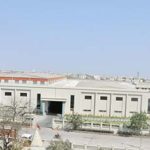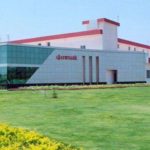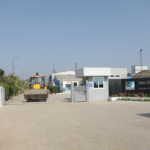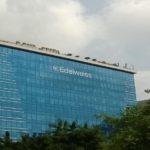Are you Know about Portfolio Management System (PMS) investment for an NRIs in Cape Town, South Africa? So, Lets discuss here about the topic, One of the world’s wealthiest people resides in India. With the growing Indian economy, these wealthy people are increasingly willing to invest in Indian equities. There are many advisory firms, broking firms, and banks that offer products and services that specifically cater to the need of the Non-Resident Indian (NRI) community. Out of these production services, Portfolio Management Service (PMS) is one of them. There are many Non-Resident Indians (NRIs) in Cape Town, South Africa who are completely confused between Portfolio Management Services (PMS) and Mutual Funds (MF).
The confusion between the two is natural because there are many investment options, so it is very natural to get confused about the right investment option for the individual investor. For instance, there are multiple ways to invest in equities. Like one can make a direct investment in stocks, or one can invest in stocks through Portfolio Management Services (PMS), Mutual Funds (MF), etc.
The reason behind the confusion is that there are certain similarities between the investments through Mutual Funds (MF) and Portfolio Management Services (PMS). For example, Mutual Funds (MF)and Portfolio Management Services (PMS) both include investment through active fund management by professional fund managers. However, irrespective of some similarities, Mutual Funds (MF)and Portfolio Management Services (PMS) are two different things. The article below will discuss all the essential segments of the Portfolio Management Scheme (PMS), and it will also differentiate between Mutual Funds (MF) and Portfolio Management Services (PMS) to provide you with better insights into the scheme.
Who is a Non-Resident Indian (NRIs) from Cape Town, South Africa in India?
As mentioned in the Foreign Exchange Management Act (FEMA) 1999, a Non-Resident Indian (NRIs) from Cape Town, South Africa in India is a person residing outside India for employment, business, education, or vocation in the circumstances. If an individual intends to stay out of India indefinitely, he will be considered a Non-Resident Indian (NRI). Besides this, a person who stays in India for less than 182 days during a specific financial year will also be considered a Non-Resident Indian (NRIs) from Cape Town, South Africa in India.
NRIs in South Africa
The term “South Africa” comes from the country’s location at Africa’s southernmost point, formally known as the Republic of South Africa (RSA). The country was given the names Union of South Africa in English and Unie van Zuid-Afrika in Dutch upon its inception, reflecting its origins as the union of four formerly independent British colonies. The full formal name in English has been “Republic of South Africa” since 1961, and in Afrikaans, Republiek van Suid-Afrika. Each of the country’s 11 recognised languages has had an official name since 1994.
Capital – Bloemfontein (judicial), Cape Town (legislative), & Pretoria (executive)
Largest city – Johannesburg
Official languages- Afrikaans, English, , debele, Sepedi, Sesotho, Setswana, Swazi, Tshivenda, Xhosa, Xitsonga, Zulu
Population – 60,142,978 (2021 Estimate)
Area – 1,221,037 Sq. km
For much of the 20th Centuary, South Africa remoteness—it is thousands of miles from major African cities like Lagos and Cairo and more than 6,000 miles (10,000 km) from most of North America, Europe, and eastern Asia, where its major trading partners are located—helped to reinforce the official apartheid system.
With around 60 million inhabitants, the country ranks as the world’s 23rd most populous. Pretoria, Bloemfontein, and Cape Town are South Africa’s three capital cities, each housing the executive, judicial, and legislative branches of government. The largest city is Johannesburg.
The South Atlantic and Indian Oceans border South Africa on the south, Namibia, Botswana, and Zimbabwe on the north, and Mozambique, Eswatini, and the enclaved republic of Lesotho on the east and northeast. It is the most populous country south of the equator and the continent of the Old World’s southernmost country. With a diverse assortment of biomes, plants, and animals, South Africa is a biodiversity hotspot.
South Africa is a multicultural country with many different cultures, languages, and faiths. The constitution recognises 11 official languages, the fourth-highest number in the world, reflecting the country’s multicultural nature. According to the 2011 census, Zulu and Xhosa are the two most commonly spoken first languages (16.0%). The following two are European in origin: English (9.6%) symbolises the history of British colonisation and is widely used in public and business life.
Throughout the twentieth century, the black majority attempted to gain more rights from the country’s dominating white minority, which had a significant impact on the country’s recent history and politics. Apartheid was established in 1948 by the National Party, which formalised racial segregation. The repeal of discriminatory legislation began in the mid-1980s, after a lengthy and often violent campaign by the African National Congress (ANC) and other anti-apartheid activists inside and outside the nation.
In the country’s liberal democracy, which includes a parliamentary republic and nine provinces, all ethnic and linguistic groups have had political representation since 1994. South Africa is frequently referred to as the “rainbow nation” to represent the country’s multicultural richness, particularly since apartheid ended.
South Africa is a global upper-middle power with major regional influence and membership in both the Commonwealth of Nations and the G20. It is a developing country, with a Human Development Index of 114. It is a recently industrialised country, according to the World Bank, with the second-largest economy in Africa and the 33rd-largest in the world. In Africa, South Africa has the most UNESCO World Heritage Sites. South Africa’s government accountability and quality of life have significantly improved after the end of apartheid. However, violence, poverty, and inequality persist, with about a quarter of the population unemployed and living on less than US$1.25 per day in 2008.
Constitutional Framework of South Africa
The South Africa Act of 1909, enacted by the British Parliament, merged the Cape of Good Hope and Natal, two former British territories, with the Transvaal and Orange Free State, two former Boer (Dutch) republics. The new South African Union was built on a parliamentary system, with the British queen serving as the head of state. The Republic of South Africa Constitution Act of 1961 made the nation an independent republic from a British Commonwealth dominion.
South Africa’s political evolution has been affected by its colonial past and the white minority’s adoption of apartheid policies. A new nonracial interim constitution was ratified in 1993 and took effect in 1994, following massive protest and social instability. In 1997, the interim text necessitated a new, permanent constitution, which Parliament prepared in 1996.
Cultural life Of South Africa
South Africa is a study in contrasts, blending Western technology with indigenous technology, Western customs with African and Asian cultures. It also teaches about how cultures can sometimes blend, sometimes clash; for example, the villas of South Africa’s white elite and the tar-paper shacks of Black day labourers, office buildings with the most sophisticated electronic wiring and one-room houses without electricity are all within a short distance of one another. In terms of education and economic opportunities, there is still a significant divide between the white minority and the black majority. Nonetheless, South Africa is steadily removing some of these historical inequalities and their repercussions.
Why should choose Portfolio Management Services (PMS) as an NRIs in Cape Town, South Africa?
Portfolio Management Services (PMS) are designed to make investment portfolios in fixed income, cash, stocks, debt, structured products, and other individual securities as an NRIs in Cape Town, South Africa. All these services can be tailored and customized to meet investor-specific investment objectives. By investing in Portfolio Management Services (PMS), you will be able to own individual securities, whereas, in Mutual Funds (MF), you can only earn the units of the fund. Portfolio Management Services (PMS) are flexible and allow portfolio customization to address the investor’s personal preferences and financial goals.
What is a Portfolio Management Services (PMS) for NRIs in Cape Town, South Africa?
In simple words, a Portfolio Management Service (PMS) is a customized solution for creating wealth. A Portfolio Management Service (PMS) is for an individual with a high net worth and who wants to invest in equity, debt, and other securities through a designated fund manager. In portfolio management service, the investor’s investment objectives are kept in mind while making any investment as an NRIs in Cape Town, South Africa.
Many investors desire personalized investment solutions and portfolio construction. Besides this, many individuals in Portfolio Management Services (PMS) demand easy access to the fund manager, mainly focusing on long-term wealth creation. So, the people who want personalized investment solutions and long-term wealth creation opt for Portfolio Management Services (PMS). For Portfolio Management Services (PMS), you need to have a general minimum corpus to invest under Portfolio Management Services (PMS) schemes offered by various entities registered in India.
Difference between Portfolio Management Services (PMS) vs. Mutual Funds (MF) for an NRIs in Cape Town, South Africa
 As mentioned above, Portfolio Management Services (PMS) and Mutual Funds (MF) have some striking similarities and differences. To get a better idea of Portfolio Management Services (PMS), you need to understand the difference between Portfolio Management Services (PMS) and Mutual Funds (MF). Following are the key differences between Mutual Funds and Portfolio Management Services (PMS) for NRIs in Cape Town, South Africa: –
As mentioned above, Portfolio Management Services (PMS) and Mutual Funds (MF) have some striking similarities and differences. To get a better idea of Portfolio Management Services (PMS), you need to understand the difference between Portfolio Management Services (PMS) and Mutual Funds (MF). Following are the key differences between Mutual Funds and Portfolio Management Services (PMS) for NRIs in Cape Town, South Africa: –
Different objectives
The key difference between the two is their objectives. In Portfolio Management Services (PMS), the professional service is offered with the purpose to meet investor-specific investment objectives. It simply means that in Portfolio Management Services (PMS), the investment is made according to the investor’s investment objectives. While on the other hand, the objective of Mutual Funds (MF) is to meet fund-stated investment objectives. Mutual funds (MF) are structured to meet the fund-stated investment objectives, not the investor-specific investment objectives.
Minimum investment in Portfolio Management Services (PMS) and Mutual Funds (MF) as an NRIs in Cape Town, South Africa
The minimum investment required in a Portfolio Management Service (PMS) is rupees 50 lakhs. On the other hand, a person can start investing in a Mutual Fund (MF) with a minimum of 500 rupees investment. The minimum investment in Portfolio Management Services (PMS) is very high compared to Mutual funds (MF). According to the Securities Exchange Board of India (SEBI) regulation, the minimum threshold required for investing in Portfolio Management Services (PMS) is rupees 50 lakhs. The individual can invest by way of stock, cash, or a combination of both. Whereas investments in Mutual Fund (MF) shares are quite low.
Different portfolio construction
The portfolio construction in Portfolio Management Service (PMS) is around 15 to 25 stocks, while the portfolio construction in Mutual Funds (MF) is more than 50 stocks. Most Portfolio Management Services (PMS) are focused portfolios; that’s why they are constructed with 15 to 25 stocks. In contrast, Mutual Funds (MF) are diversified portfolios with more than 50 stocks.
Difference in ownership
The Portfolio Management Service (PMS) ownership rests with the investors, while in Mutual Funds (MF), the mutual fund trustees are the owners. The stock brokers are the middleman who invests on behalf of the investors; they work on a contractual basis. While the Mutual Funds (MF) investors only allocate the money, they are not the sole owners. Ownership in Mutual Funds (MF) completely relies on mutual fund trustees.
Customization available for NRIs in Cape Town, South Africa
The Portfolio Management Service (PMS) allows the investor to customize because the investment is made to meet the investor’s objectives. That’s why in Portfolio Management Services (PMS), customization is possible while, on the other hand, in Mutual Funds (MF), customization is not possible. Mutual Funds (MF) are structured to meet fund-stated investment objectives, so they do not allow any customization. Besides this, the ownership of the Portfolio Management Services(PMS) is on investors, while in the case of Mutual Funds (MF), mutual fund trustees are the sole owners. Portfolio Management Services (PMS) allow customization to meet the specific requirements of the investors, while there is no customization in Mutual Funds (MF).
Weightage stock of portfolio
The portfolio stock weightage in Portfolio Management Services (PMS) is quite flexible, while in Mutual funds (MF), the portfolio stock weightage is limited to 10% only. The portfolio stock weightage in Portfolio Management Services (PMS) is flexible and can locate any weightage to single stocks. Meanwhile, Mutual Funds (MF) are restricted and allow the maximum allocation to a single stock of 10%. The maximum allocation capacity to single stock is not more than 10% for stock, while on the other hand, the PMS is quite flexible.
Reach to investors
The Portfolio Management Services (PMS) reach is limited and restricted to a limited number of investors. While in the case of Mutual Funds (MF), the reach is unrestricted and includes a wide number of investors.
Ideal investor for both
The investment solutions provided by Portfolio Management Services (PMS) are to serve a niche segment of clients. In comparison, Mutual Funds (MF) investors are wide mass retail investors. You should remember that the Non-Resident Indians (NRIs) with a high investment budget exceeding 50 lakhs can prefer, Portfolio Management Services (PMS), which will ensure high returns to them with more flexible investments. On the other hand, for Non-Resident Indians (NRIs) with a restricted budget (500 rupees investment), Mutual Funds (MF) are the best option.
Applicable charges
Lastly, the charges for Portfolio Management Services (PMS) for NRIs in Cape Town, South Africa are two to three percent annually, while the charges for Mutual Funds (MF) are up to 2.25% only.
How can invest in Portfolio Management Services (PMS) Schemes in India as NRIs from Cape Town, South Africa?
An NRI from Cape Town, South Africa can invest in Portfolio Management Services (PMS) under the Securities and Exchange Board of India (SEBI) regulation in India. Though Non-Resident Indians are allowed to invest in Indian markets, certain restrictions are imposed on the investment made by them. The Securities and Exchange Board of India (SEBI) has laid some eligibility criteria for the Non-Resident Indians that they need to qualify for investing in Portfolio Management Services (PMS). The criteria established by the Securities and Exchange Board of India (SEBI) are as follows: –
Different criteria are there depending upon the source of the funds. The source of the funds can be self-investing or backed by angel investors. For Non-Resident Indians, the minimum corpus of rupees 20 crores is required if they are self-investing. If they have angel investors backing them, they need to have a minimum corpus of 10 crore rupees. The angel investor, sponsor, or manager must bear a continuous interest for five crore rupees or less than 2.5% on the corpus invested at the initial stage.
Besides this, the Non-Resident Indian is required to have a DEMAT or a trading account if he wants to invest in the Indian market.
Lastly, it is crucial to have a Non-Resident External (NRE) account or a Non-Resident Ordinary (NRO) account to make any investment or transaction in India. Non-Resident External (NRE) account is an account where the Non-Resident Indian (NRI) can park their foreign earnings. A Non-Resident Ordinary (NRO) account is an account where The NRI can park the profits made from investments in India. While a Non-Resident External (NRE) account is tax-free, a Non-Resident Ordinary (NRO) account is completely subjected to tax deduction at the source.
Portfolio Management Service Taxation for Non-Resident Indian from Cape Town, South Africa in India
The brokerage firm pays the net profit and deducts the applicable tax at source on behalf of Non-Resident Indian from Cape Town, South Africa investors in Portfolio Management Services (PMS) in India. Portfolio managers are the individuals who handle your account and help you with filing your taxes. They will provide you with tax statements at the end of the year, and according to that, you are required to pay taxes. They are also responsible for keeping the entire process of investments transparent, and they are not authorized to sell or invest anywhere without your knowledge. If the capital gain in India is below 250,000 rupees, the NRI is eligible to file a tax return to claim a refund for the taxes that are deducted at the source.
Benefits of investing through Portfolio Management Services (PMS) for Non-Resident Indians in Cape Town, South Africa
There are many benefits for a Non-Resident Indian of investing through Portfolio Management Services (PMS) in Cape Town, South Africa; some of them are as follows: –
Transparency for an NRIs in Cape Town, South Africa
The Portfolio Management Services (PMS) are transparent in terms of expense and ratios and one can access them 24/7. The PMS allows 24/7 online access to investors. Besides this, PMS investors directly own portfolio stocks in their DP, and every transaction is intimated to the investor. There is no chance of fraud because the transparency level in Portfolio Management Services (PMS) is quite high.
Managed by professionals for an NRIs in Cape Town, South Africa
Some qualified and experienced portfolio managers manage the Portfolio Management Services (PMS). These portfolio managers are backed by a strong research team who manages portfolios on behalf of the clients. It simply means that the portfolio managers will manage the clients’ portfolios and make investments on their behalf after taking their consent. The portfolio managers should be resident Indians. These portfolio managers are professionals and experts in managing portfolios.
Customized investment advice for an NRIs in Cape Town, South Africa
The professional services served by Portfolio Management Services (PMS) are customized and meet the investment objectives of various investors. The task of the portfolio manager is to build and manage the portfolio according to the strategy selected and the timing of the investment. The services provided by the portfolio manager are customized and tailor-made according to the investor’s financial goals, objectives, and requirements.
Taxation benefits for an NRIs in Cape Town, South Africa
 The tax applicable on the investment portfolio held in a PMS is always treated at an individual investor level. The taxation will be applicable depending on the holding tenure of each investment. According to the holding tenure of investment, the long-term capital gains tax and short-term capital gains tax will be applicable.
The tax applicable on the investment portfolio held in a PMS is always treated at an individual investor level. The taxation will be applicable depending on the holding tenure of each investment. According to the holding tenure of investment, the long-term capital gains tax and short-term capital gains tax will be applicable.
Benefits of superior returns for an NRIs in Cape Town, South Africa
Portfolio Management Services (PMS) need high investment, but they are more aggressive and have the potential to generate superior returns. If you choose the correct portfolio manager with meaningful exposure to such companies and hold on as long as they deliver growth by adding value and superior returns.
Things to remember while investing in Portfolio Management Services (PMS) as an NRIs in Cape Town, South Africa
There are certain things that a Non-Resident Indians from Cape Town, South Africa should keep in mind while making any investment in portfolio management services in India.
Any Indian national or resident can easily access the Portfolio Management Services (PMS). If the non-resident Indian desires to invest in a Portfolio Management Services (PMS) scheme, they must open a Portfolio Investment Scheme (PINS) account. According to the guidelines of the Reserve Bank of India (RBI), a non-resident must have a portfolio investment scheme account if they want to invest in portfolio management services.
Being an NRI, you must appoint a stockbroker who should be an Indian resident. The stock broker will buy and sell shares on behalf of the NRI. Besides this, the NRI must open a separate Non-Resident Indian PMS account, and he also needs to sign an agreement with the PMS service provider. Here you need to know that all the documentation process will be typically handled by the stock broker or the person who is providing you service on behalf of the Non-Resident Indian.
The Non-Resident Indian is empowered to transfer any existing investment to the PMS service provider. Once the PMS contract is expired, the NRI investor can repatriate the net investment post-tax if the investments were made through the Non-Resident Indian (NRI) Portfolio Investments Scheme (PIS) account.
There are some other do’s and don’ts that apply to Non-Resident Indians (NRIs) under the PIS scheme of the reserve bank of India. All the do’s and don’ts apply to the investment made in single stocks and apply to the procedure for the investment made under the repatriation and non-reparation basis and short selling of shares.
One can fix the charges for the PMS or can, make it performance-based, or a combination of both. Whatever the settlement, it will be communicated to the Non-Resident Indian (NRI) investor and documented in the agreement between the stockbroker and the Non-Resident Indian (NRI). The Non-Resident Indian must pay other charges applicable for operating the Portfolio Investments Scheme (PIS) account, DEMAT maintenance charges, and brokerage charges for transactions.
The personalized customization of professional money management with easy access to the fund manager and flexibility in investment decisions making, all these things make the Portfolio Management Service (PMS) an attractive avenue for investments. But you must remember that all these services can be costly with no tax benefit for NRIs.
Conclusion to invest in Portfolio Management Services (PMS) Schemes as an NRIs in Cape Town, South Africa
India is a big democratic country with a growing economy that attracts many Non-Resident investors. Recently a lot of people have been willing to invest in Indian markets. Many people prefer Mutual Funds as they are among the safest investment options. A lot of people are not aware of Portfolio Management Services (PMS), and a majority of people get confused between Portfolio Management Services (PMS) and Mutual Funds (MF). Mutual Funds (MF) and Portfolio Management Services (PMS) are beneficial and can yield huge profits if you choose your ideal investment option. Mutual Funds (MF) are suitable for people who don’t have huge investments; meanwhile, Portfolio Management Services (PMS) support wealthy people who have high investments. After reading the article, you would have a clear difference between Mutual Funds (MF) and Portfolio Management Services (PMS) for an NRIs in Cape Town, South Africa.








































